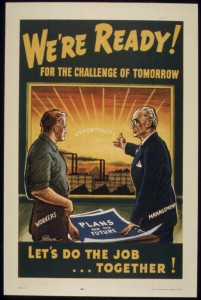
Last night, I was discussing with friends the minimum wage bills that failed to pass the legislature this past session.
Minimum wage laws are often sold as measures to raise the incomes of the poor, but that’s not what they do. The proponents forget that when minimum wages are raised, businesses are not magically endowed with more money to spend on employees. Employers have two choices: reduce their employee hours, or reduce their profits.
In the former case, that’s not much help to the employees Fewer employees or fewer hours at a slightly higher rate doesn’t help employees much. In the latter case, reducing profits inevitably means fewer businesses, because any business “on the edge” will likely just fail. Those who can “afford” to reduce profits will have less incentive (profit) to spur growth and expansion. The result? Fewer jobs.
This is easy to see if you think about what minimum wage laws do. They make it illegal to hire at wages that used to be legal. No one is actually compelled to pay more, to the same employees. Adjustments are made. Some employers will choose to pay more, and others will choose to hire less. That’s the choice they have.
Because the vast majority of minimum wage workers are part time and teenagers, minimum wage bills are often called Youth Unemployment Acts. (see here, and here and here and here)
Thomas Sowell writes eloquently and clearly on economics. His recent column A Lesson for the Busybodies tells his story, and outlines how and why these misguided laws harm the very people they are supposedly trying to help. Excellent reading.
I share Dr. Sowell‘s distaste for the busybodies in rich countries who impose their standards on employers and employees in the third world. They seldom notice that the targets of their benevolence wish they would just go away. The poor, oddly, often prefer economic progress over permanent poverty. (see here) In any case, it is not the business of the busybodies in the US to choose for them.
Whether in Minnesota, or the third world, these choices are opportunities, and should be up to those who must choose, not the busybodies who purport to “help” them.

